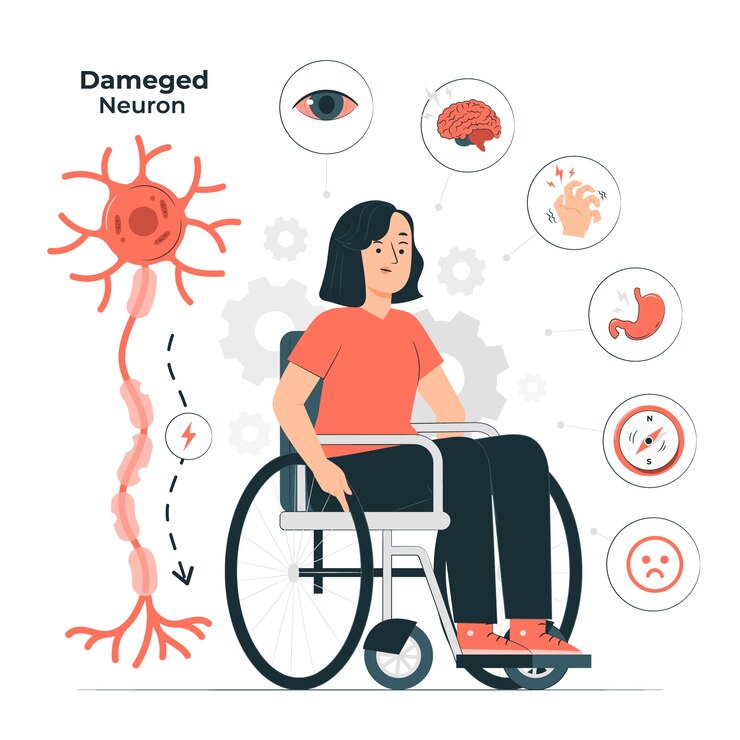Table of contents
Multiple Sclerosis (MS) is a chronic autoimmune disease that affects the central nervous system. It can lead to a wide range of symptoms, including muscle spasms, fatigue, pain, and mobility issues. While traditional treatments can help manage these symptoms, many individuals are exploring alternative options to improve their quality of life — one of the most promising being CBD for Multiple Sclerosis.
In this blog post, we’ll take a deep dive into how CBD may support those living with MS, what the science says, how to use it effectively, and what real users are saying.
What Is Multiple Sclerosis?

Multiple Sclerosis is a disease where the immune system attacks the protective sheath (myelin) that covers nerve fibers. This leads to communication problems between the brain and the rest of the body, which can eventually cause permanent nerve damage.
Common symptoms of MS include:
- Muscle spasticity
- Chronic pain
- Fatigue
- Numbness or tingling
- Cognitive challenges
- Bladder and bowel issues
Because MS is unpredictable and varies from person to person, symptom management is a core focus of treatment.
Why Consider CBD for Multiple Sclerosis?
CBD (cannabidiol) is a naturally occurring compound found in the cannabis plant. Unlike THC, CBD does not produce a “high,” making it a safe and legal option in many parts of the world. It works by interacting with the endocannabinoid system (ECS), which helps regulate functions like pain perception, immune response, and muscle control.
CBD may help people with MS manage their symptoms more naturally, without the harsh side effects often associated with pharmaceuticals.
Key Benefits of CBD for Multiple Sclerosis

1. Muscle Spasticity Relief
Muscle spasticity is one of the most common and painful symptoms of MS. Several studies suggest that CBD can reduce the severity and frequency of muscle spasms. Sativex, a pharmaceutical oral spray containing both THC and CBD, is already approved in many countries for MS-related spasticity.
2. Pain Reduction
CBD’s anti-inflammatory and analgesic properties may provide relief from neuropathic pain — a frequent and often debilitating symptom in MS patients.
3. Better Sleep
Pain, muscle spasms, and anxiety can all interfere with sleep. CBD may help promote restful sleep by calming the nervous system and reducing nighttime discomfort.
4. Fatigue Management
While fatigue is complex and can have multiple causes in MS, users report that CBD helps regulate their energy levels and mood, indirectly reducing fatigue.
5. Reduced Anxiety and Depression
CBD has shown promise in managing anxiety and depression, which are common among people living with chronic conditions like MS.
How to Use CBD for Multiple Sclerosis
If you’re considering CBD for Multiple Sclerosis, here are a few methods of administration:
● CBD Oil/Tinctures
These are placed under the tongue for quick absorption and can be easily dosed.
● CBD Capsules
Great for consistent dosing and ease of use, especially for those who prefer not to taste the oil.
● Topicals (Creams and Balms)
Applied directly to the skin for localized relief from joint and muscle pain.
● CBD Edibles
Offer a tasty way to take CBD, though they have a slower onset time compared to tinctures.
● CBD Vapes
Provide fast relief, especially for sudden spasms or pain, but may not be ideal for everyone due to lung health concerns.
Important Note: Always consult with a healthcare provider before starting any CBD regimen, especially if you’re currently taking medication for MS.
Scientific Support and Ongoing Research
While more research is needed, existing studies provide encouraging insights:
- A 2012 clinical trial showed significant improvement in muscle stiffness using CBD and THC in MS patients.
- A 2018 review published in Frontiers in Neurology found that CBD could reduce fatigue, pain, and spasticity, and improve mobility in people with MS.
- Ongoing studies continue to explore CBD’s role in neuroprotection and inflammation reduction.
Real Stories: MS Patients and CBD
Many MS patients have reported meaningful improvements in daily life after incorporating CBD into their wellness routines. Testimonials include better pain control, improved sleep, more energy, and a sense of calm. While not a cure, CBD can be a powerful tool in the symptom management toolbox.
FAQs About CBD for Multiple Sclerosis
Yes, CBD is generally considered safe. However, it’s crucial to talk to your doctor before starting, especially if you’re taking other medications.
No, CBD should not replace prescribed treatments unless advised by a healthcare provider. It can be used alongside other therapies for enhanced support.
Most users find tinctures or topicals effective. However, the best method depends on the specific symptoms you want to target.
Effects can vary. Some people feel relief within 30 minutes, while others may need a few weeks of consistent use to notice benefits.
Hemp-derived CBD with less than 0.3% THC is legal in many countries and U.S. states. However, it’s always best to check your local laws.
Final Thoughts
Using CBD for Multiple Sclerosis offers a natural, complementary way to manage symptoms like pain, spasticity, fatigue, and anxiety. While it’s not a cure, the growing body of scientific evidence and personal success stories make CBD a compelling option worth exploring.
If you or a loved one is living with MS and looking for additional ways to improve quality of life, CBD might be a supportive and effective addition to your wellness routine.





